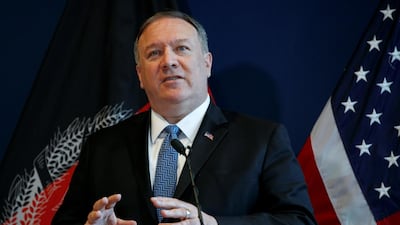As tensions continue to rise between the US and Iran, the UAE is working with allies to defuse and de-escalate. This approach is designed to foster stability and protect energy supplies, whose safe passage through the region is integral to the global economy. Oil prices have risen following recent attacks on tankers off the coast of Fujairah and in the Gulf of Oman, which the US has blamed on Iran. Nearly a third of the world's seaborne oil passes through the Strait of Hormuz – equivalent to 18.5 million barrels per day – and yet Tehran has repeatedly threatened to block it, particularly given US President Donald Trump's plan to reduce Tehran's oil exports to zero by cancelling waivers to eight of its top importers.
Throughout, the UAE has been taken a mature and measured stance. Speaking in London, Adnoc chief executive Dr Sultan Al Jaber said: "Now is the time for wisdom, diplomacy and the concerted efforts of the international community." The UAE is well aware that war will serve no one's interests. That is why the nation is urging de-escalation, while simultaneously reminding Iran that those who seek to destabilise regional politics and the global economy will be held to account.
Last week, the White House was poised to launch a military offensive against Iranian targets, following the downing of a US drone. Ultimately, Mr Trump called it off, fearing at least 150 civilian casualties. However, in recent days, the hostile rhetoric of both Mr Trump and Iranian President Hassan Rouhani has escalated. That is why diplomats and security experts urged the US to formulate a holistic plan to "constrain, contain and deter" Iran at a forum held by The National in London. With fresh US sanctions imposed this week, including measures specifically aimed at Iran's Supreme Leader Ayatollah Ali Khamenei, Tehran has insisted that all diplomatic channels are now closed.
The UAE understands the need to keep them open – because war in the Middle East can only be averted with dialogue. Given their proximity, Gulf states are aware of the threat Iran poses, particularly with its proxies in Syria, Yemen, Lebanon and Iraq. But the UAE has repeatedly expressed its willingness to avert an all-out war.
In an encouraging sign, US Secretary of State Mike Pompeo is touring the region to build an international coalition to restrain Iran, particularly its hawkish Revolutionary Guard Corps. A cohesive approach, pursued in concert with America’s strongest allies in the region, is vital. Although France, Britain and Germany remain committed to the flawed Iran nuclear deal – from which Mr Trump withdrew last year – they have vehemently condemned the tanker attacks. With an emphasis on constraining Tehran and its proxies and deterring further assaults on shipping vessels, a global coalition is the only way to de-escalate tensions.

